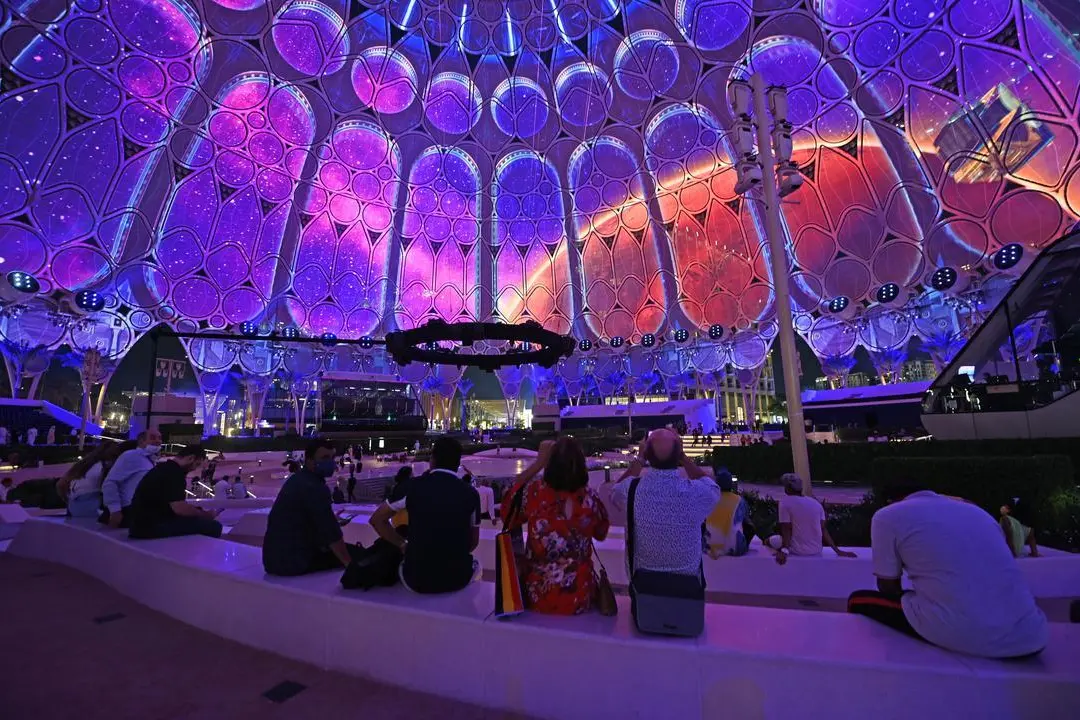PHOTO
It’s 38 degrees Celsius, but despite the sweltering heat, the long queue outside the Palestine pavilion only continues to grow.
Perhaps, visitors are used to these queues; the crowd has been swelling at the show-piece event with unflinching regularity since Expo 2020 Dubai opened on October 1.
The pavilion is a big draw for the Palestinian nationals living in the UAE as well as others.
A replica of streets in Palestine
The authorities are ensuring compliance with strict Covid-19 protocols. A group of visitors must make an exit before others are allowed to enter.
The door stays shut until the visitors are inside. We eagerly move in as soon as the door opens. Help is at hand, thanks to an ever-smiling guide, who shows us around.
The guide tells us the pavilion floor is a replica of the streets in Palestine.
A snapshot of urban landscape
Marketplaces and illustrations of famed urban landmarks dot the walls of the colourful pavilion.
These include the historic Al Aqsa Mosque, the third holiest site in Islam, and the Church of Nativity, a basilica located in Bethlehem in the West Bank.
An audio-visual clip plays in a loop on a giant screen that showcases the natural beauty of Palestine and its people, who are known for their cheerful dispositions.
A sneak peek into Palestine’s history
Various interactive stands, which give a sneak peek into Palestine’s history, are strategically placed inside the pavilion.
The Return Key is one such thought-provoking stand. There, many left their keys and gave them to their children.
The key is a powerful metaphor for all Palestinian Arabs and their insistence of their right to return to their homeland, which came under the occupation of Israel.
A sensory journey
A hallway takes us on a sensory journey of the sights, sounds and smells of the streets in Palestine.
Children are visibly excited, as a tiny hall houses pots that exude authentic scents of orange and olive, which are reminiscent of the beleaguered homeland of the Palestinians.
Food for thought
A light show casts a spell on a dining table, where a book designed like a menu opens up for visitors.
The book contains photographs of the traditional Palestinian dishes such as hummus, foul, falafel, zaatar, makloubeh, musakhan and kunafa.
Ultimately, the Palestine pavilion is a stunning reflection of a deeply historic land. After soaking in the sights and unlocking pieces of history, visitors can conclude their trip by tasting the country's delicious cuisine.
The pavilion, designed by Al Nasher, is located in the Opportunity District.
Copyright © 2021 Khaleej Times. All Rights Reserved. Provided by SyndiGate Media Inc. (Syndigate.info).





















